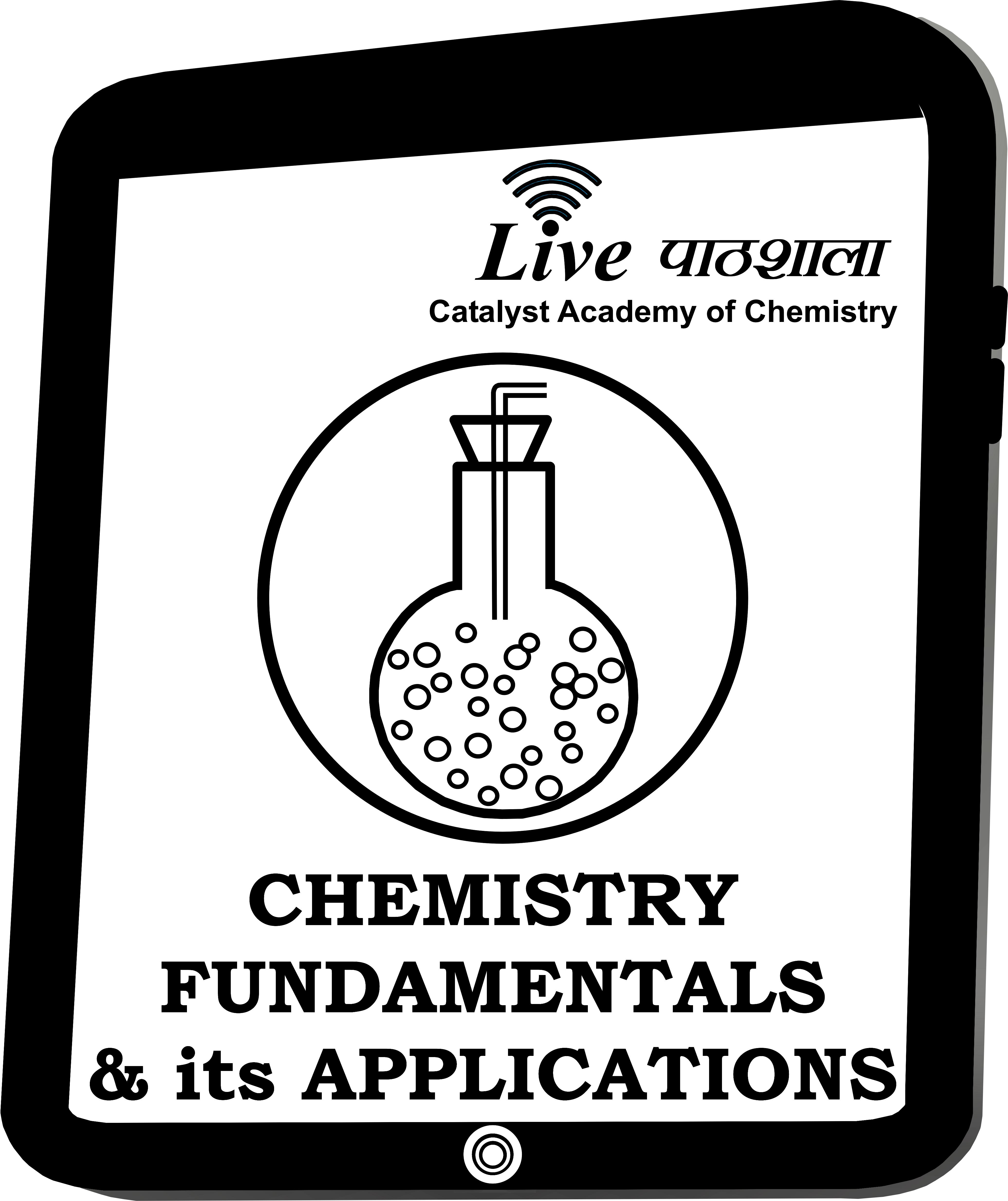|
About LIVE Paathshala: LIVE Paathshala is venture of Catalyst Academy of Chemistry broadcasting Real-Time LIVE Interactive Classes (Unique blend of Conventional & Modern methods of Teaching and Learning) for students of Grade XI, XII and above. The Chemistry delivered by us covers all Fundamentals of chemistry including Concepts and its Applications such as (How & when), and its techniques to understand at all levels. The points covered is the integrated syllabus of all Curriculum (C.B.S.E., ICGSE, ICSE, Cambridge . . . . . .) & Universities. It also guide students about exam techniques, How to do well to achieve their Goal. This comprehensive course includes Tips, Tricks, Techniques, Practice problems and Applications to keep students away from Chemistry Phobia. It also guide students for selection of Carrier & also make them do well in all aspects. COURSE OBJECTIVE : DESCRIPTION : Main TOPICS: Unit 1. Atomic structure and atomic spectra • The structures of many-electron atoms : The orbital approximation ; Self-consistent field orbitals • The spectra of complex atoms : Quantum defects and ionization limits ; Singlet and triplet states ; Spin–orbit coupling ; Term symbols and selection rules Unit 2. Molecular structure (The Born–Oppenheimer approximation) • Molecular orbital theory : The hydrogen molecule-ion ; Homonuclear diatomic molecules ; Heteronuclear diatomic molecules • Molecular orbitals for polyatomic systems : The Hückel approximation ; Computational chemistry ; The prediction of molecular properties Unit 3. Molecular symmetry • Applications to molecular orbital theory and spectroscopy : Character tables and symmetry labels ; Vanishing integrals and orbital overlap ; Vanishing integrals and selection rules Unit 4. Molecules in motion • Molecular motion in liquids : Experimental results ; The conductivities of electrolyte solutions ; The mobilities of ions ; Conductivities and ion–ion interactions • Diffusion : The thermodynamic view ; The diffusion equation ; Diffusion probabilities ;The statistical view Unit 5. Gases and liquids • The liquid–vapour interface • Condensation Unit 6. The properties of gases • Real gases : Molecular interactions ; The van der Waals equation ; The principle of corresponding states Unit 7. The solid state • Crystal structure : Metallic solids ; Ionic solids ; Molecular solids and covalent networks • The properties of solids : Mechanical properties ; Electrical properties ; Optical properties ; Magnetic properties ; Superconductors Unit 8. Processes at solid surfaces • The extent of adsorption : Physisorption and chemisorption ; Adsorption isotherms ; The rates of surface processes ; Mechanisms of heterogeneous catalysis ; Catalytic activity at surfaces Unit 9. The First Law • Thermochemistry : Standard enthalpy changes ; Standard enthalpies of formation ; The temperature-dependence of reaction enthalpies • State functions and exact differentials : Exact and inexact differentials ; Changes in internal energy ; The Joule–Thomson effect Unit 10. The Second Law • Concentrating on the system : The Helmholtz and Gibbs energies ; Standard reaction Gibbs energies • Combining the First and Second Laws : The fundamental equation ; Properties of the internal energy ; Properties of the Gibbs energy Unit 11. Simple mixtures • The properties of solutions : Liquid mixtures ; Colligative properties • Activities: The solvent activity ; The solute activity ; The activities of regular solutions ; The activities of ions in solution Unit 12. Phase diagrams • Two-component systems : Vapour pressure diagrams ; Temperature–composition diagrams ; Liquid–liquid phase diagrams ; Liquid– solid phase diagrams Unit 13. Chemical equilibrium • The response of equilibria to the conditions : How equilibria respond to pressure ; The response of equilibria to temperature • Equilibrium electrochemistry : Half-reactions and electrodes ; Varieties of cells; The electromotive force ; Standard potentials ; Applications of standard potentials. Unit 14. Processes at electrodes Unit 15. The rates of chemical reactions • Accounting for the rate laws : Elementary reactions ; Consecutive elementary reactions ; Unimolecular reactions Unit 16. The kinetics of complex reactions • Homogeneous catalysis : Features of homogeneous catalysis ; Enzymes • Photochemistry : Kinetics of photophysical and photochemical Processes ; Complex photochemical processes Unit 17. Molecular reaction dynamics • Transition state theory : The Eyring equation ; Thermodynamic aspects • The dynamics of molecular collisions : Reactive collisions ; Potential energy surfaces ; Some results from experiments and calculations ; The investigation of reaction dynamics with ultrafast laser techniques • Electron transfer in homogeneous systems : The rates of electron transfer processes; Theory of electron transfer processes ; Experimental results After the course the student should be able to: Pre Reading : Content of previous Topics. Home Work : DPP Language of Teaching : English (Additional Languages : Marathi, Hindi ) Number of Students per Batch : 20 Duration : 16 Weeks : 5 Hour's per week : Total 80 Hrs. Class Schedule : Monday to Friday : INDIA, SINGAPORE , MALAYSIA, JAPAN, USA Saturday to Wednesday : GULF & UAE Doubt Clearing Session : Every Start & End of Class STATUS : ADMISSION OPEN
New Batches Starts Very Soon.
Faculty : Dilip K. Darodkar Fees : INR 61937/-, $ 10/- per Hour [ INR Note :
For any query related to Topic/Course, Please feel free to write us at Contact. or call +91 770 094 6867 (Whatsapp/Signal) / +91 712 295 0302. |
||||||||||||||||||||||||||||||||||||||||||||||||||

